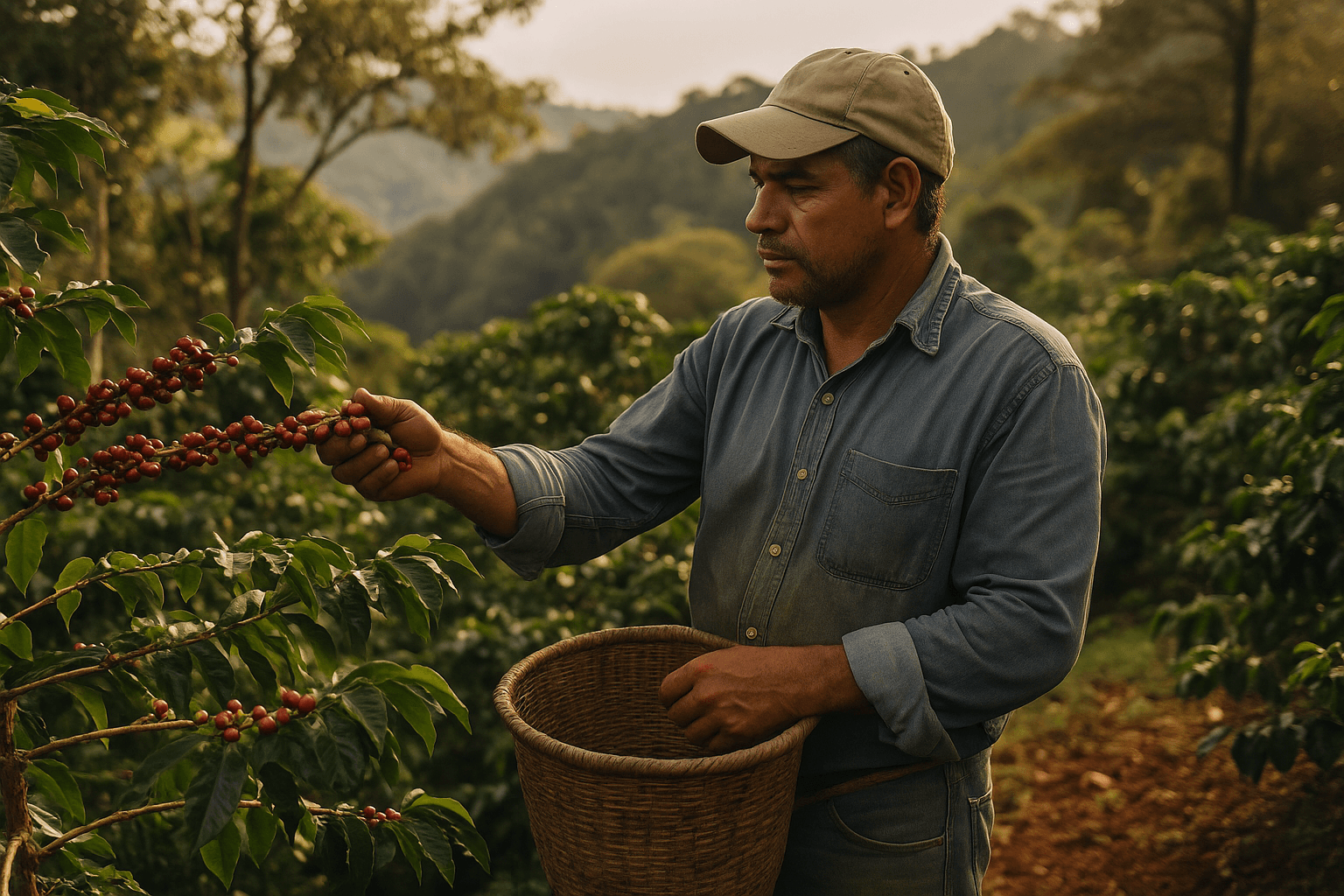Honduras is witnessing a major revival in its coffee sector, with production and exports projected to rise significantly during the 2024/25 and 2025/26 marketing years. Backed by improved weather, reduced outbreaks of coffee leaf rust, and surging international coffee prices, the country is poised to reclaim its place as one of the top Arabica coffee exporters globally.
According to the latest USDA Coffee Annual Report, Honduran coffee production is forecast to reach 5.52 million 60-kilogram bags in MY 2024/25 — a 9.3% increase over the previous year. Production is expected to continue its upward trajectory, reaching 5.8 million bags in MY 2025/26. This is the strongest performance since the 2021/22 season and reflects the sector’s increasing resilience and recovery capacity.
This rebound is largely attributed to improved on-farm conditions, the adoption of disease-resistant coffee varieties like Parainema, and a significant reduction in coffee leaf rust (Hemileia vastatrix), which has historically hampered yields. In April 2024, a national survey by IHCAFE showed that 76% of sampled farms had low levels of rust, a result of persistent dry weather and proactive farm management.
Honduras’ high-altitude geography plays a crucial role in coffee quality. Around 61% of farms are located between 3,900 and 5,200 feet above sea level. Production is spread across 15 of the country’s 18 departments, with top regions including Copán, Montecillos, Comayagua, El Paraíso, and Agalta. These areas cultivate high-quality Arabica varieties such as Bourbon, Catuai, and Typica.
Alongside the production boost, coffee exports from Honduras are expected to reach 5.36 million bags in MY 2024/25, increasing to 5.5 million bags in MY 2025/26. The rise in exports has been bolstered by global supply constraints, particularly in Brazil, where climate-related issues such as drought and heatwaves have disrupted output.
This disruption in global supply, combined with stronger demand, has driven prices to new highs. As of April 2025, the average export price of Honduran coffee reached $345.82 per 60-kg bag, marking an astonishing 81% increase from the $191.34 recorded the previous year. Consequently, total export earnings surged to $1.02 billion, doubling from $507 million the year before.
The volume of export contracts also rose to 3.33 million bags, a 19% increase from the same period last year. The United States, Germany, Belgium, Italy, and Canada remained top buyers, while South Korea emerged as a growing destination thanks to a free trade agreement with Honduras.
Despite strong export momentum, domestic coffee consumption in Honduras fell by 13%, dropping from 385,000 bags in MY 2023/24 to 335,000 in MY 2024/25. The decline is attributed to inflationary pressure and a shift in consumer preference from roasted to soluble coffee, which is more affordable. However, there is growing demand from younger consumers for specialty drinks, with Keurig-style pods and machines becoming increasingly popular in supermarkets and retail stores.
Honduras is also making significant progress in the specialty and certified coffee segment. In MY 2023/24, 52% of total exports — or 2.6 million bags — were classified as differentiated coffees. These include coffees certified by Rainforest Alliance, Organic, Fair Trade, UTZ, and 4C, which cater to the rising global demand for ethical and sustainable sourcing.
Leading the specialty coffee certification share is Rainforest Alliance (43.4%), followed by Organic (24.3%) and Fair Trade/Organic (13.2%). Such coffees command premium prices and are increasingly sought after by roasters who value traceability, environmental responsibility, and social impact in addition to flavor.
The country’s dedication to specialty coffee is further reinforced through its active participation in the Cup of Excellence (COE) competition, which celebrates the finest micro-lots in the country. Honduras also maintains a Geographical Indication (GI) for Marcala Coffee, and promotes its regional identity through the collective label “Honduran Western Coffees.”
Institutional support plays a key role in the sector’s resilience. The Honduran Coffee Institute (IHCAFE) operates six research and training centers across the country, providing farmers with guidance on improved production techniques, post-harvest processing, pest management, and sustainable practices.
The government has also enacted major policy measures to support the coffee sector. In 2022, Executive Decree 352-2022 exempted all coffee products — roasted and green — from the 12% sales tax, reducing production costs and enhancing export competitiveness. IHCAFE also launched the “Renew Without Stopping Production” program, targeting the renovation of aging farms while maintaining output and supporting over 33,000 producers.
In addition, the government is implementing a long-term climate change strategy, divided into six five-year phases stretching until 2050. This plan includes climate-resilient varietals, infrastructure investments, and new harvesting technologies to mitigate the impact of extreme weather and labor shortages.
With global recognition growing and international prices reaching record levels, Honduras is well-positioned to capitalize on its natural advantages, institutional support, and commitment to quality. As global demand shifts toward traceable, sustainable, and specialty coffees, the country stands ready to strengthen its place among the world’s top Arabica exporters.

